The greatest Hollywood career comeback of the new century continues, as this 66-year-old ’80s TV comedy and Batman movie veteran takes on the role of a hard-bitten CIA agent in American Assassin
by Matt Scanlon and Susan Hornik
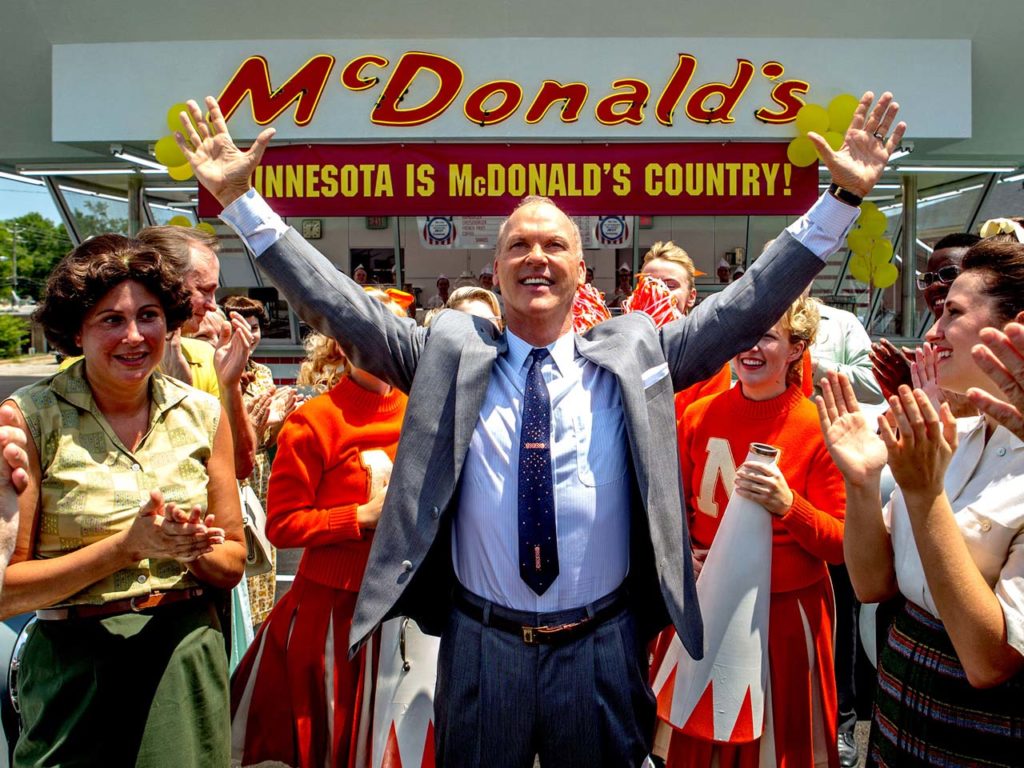
By now, F. Scott Fitzgerald’s trope that “there are no second acts in American lives” has been so thoroughly demolished—not least in the resuscitation of status our 45th president has experienced—that it needs little further disassembly here, but in Hollywood particularly, the situation is different. Yes, there are a handful of instances in which a significant career has gone dormant only to be revived (Mickey Rourke, Betty White, and John Travolta among them), but overwhelmingly, and particularly in an industry so notoriously intolerant of aging, when it’s over…it’s over.
Then something like Michael Keaton happens, and briefly turns even the most jaundiced cynics into dewy-eyed optimists again. After a relatively neatly packed and successful 1980s arc in both TV (Working Stiffs) and movie comedy (Night Shift, Johnny Dangerously, Beetlejuice) and finally to the mountaintop as the titular character in 1989’s Batman and 1992’s Batman Returns, what could and should have been an extended stay at high altitude instead turned into a series of often great but underappreciated movie drama roles (The Paper, My Life) and another big budget attempt at comedy that went awry (Multiplicity).
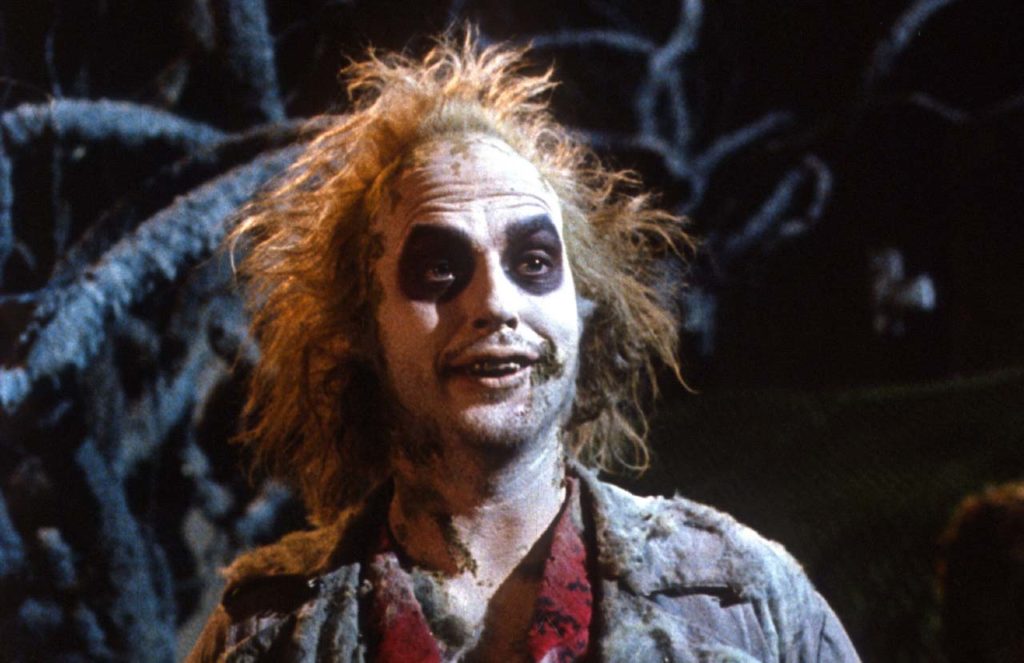
That last role, in 1996, marked a turning point. Keaton continued to work afterwards, but in significantly smaller parts—a number of cartoon voiceovers and quick hits on shows such as 30 Rock straight through to 2014. That year, the 63-year-old Keaton was cast for Alejandro Gonzalez Iñárritu’s Birdman as Riggan Thomson, a former action movie hero who attempts to revive his celebrity by starring in a Broadway production of Raymond Carver’s short story, What We Talk About When We Talk About Love. His stunning combination of bravado, vulnerability, and desperation as Thomson won him a Golden Globe for Best Performance by an Actor in a Motion Picture, along with a Best Actor Academy Award nomination. It also generated five additional motion picture offers in quick succession, including Spotlight, The Founder, and the September 15-released American Assassin, in which he plays Stan Hurley, a flinty CIA Cold War veteran who attempts to mentor recruit Mitch Rapp (played by Dylan O’Brien) as they investigate what are thought to be random terrorist attacks, but are possibly something even more sinister.
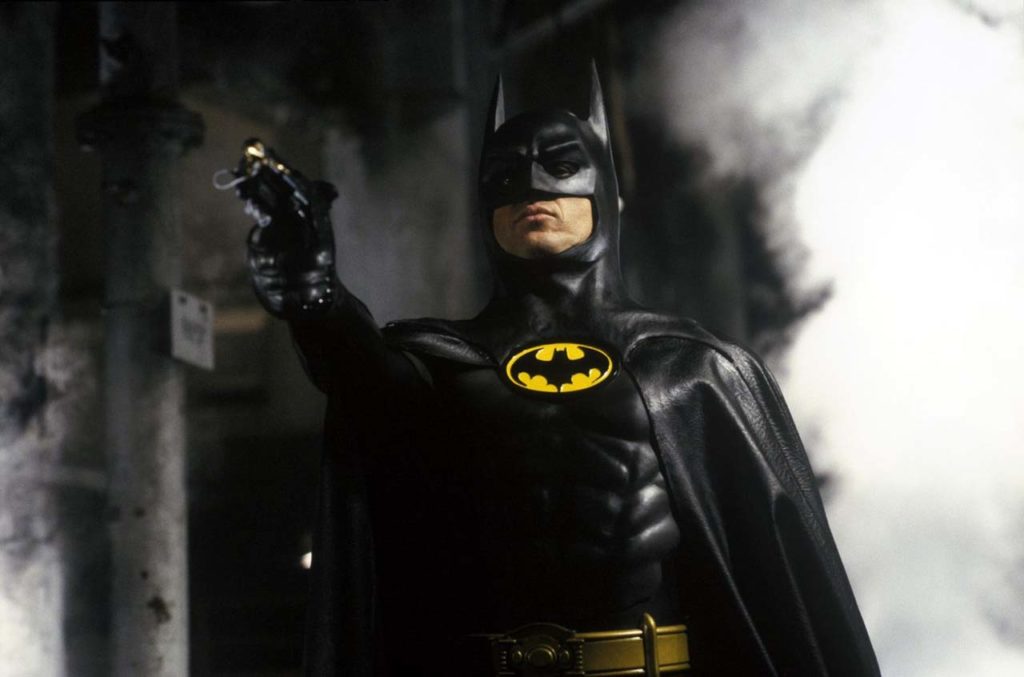
Early Days
Born in 1951 in Coraopolis, Pennsylvania and raised near Pittsburgh, Keaton is the son of civil engineer A. Douglas Keaton and homemaker Leona Elizabeth (née Loftus). He worked as a stage hand on Mister Rogers’ Neighborhood and made his first media appearance in 1975 on Pittsburgh public TV programs Where the Heart Is. He was a member of the comedy troupe the Flying Zookeeni Brothers, and acting work continued in Pittsburgh theatre, including roles with the Pittsburgh Poor Players. The late 1970s brought a move to Los Angeles, where he began auditioning for TV series, and scored some bit parts in Maude and The Mary Tyler Moore Hour. Success dominoes began falling when Keaton was cast, alongside James Belushi, in the Penny Marshall-directed CBS comedy series Working Stiffs.
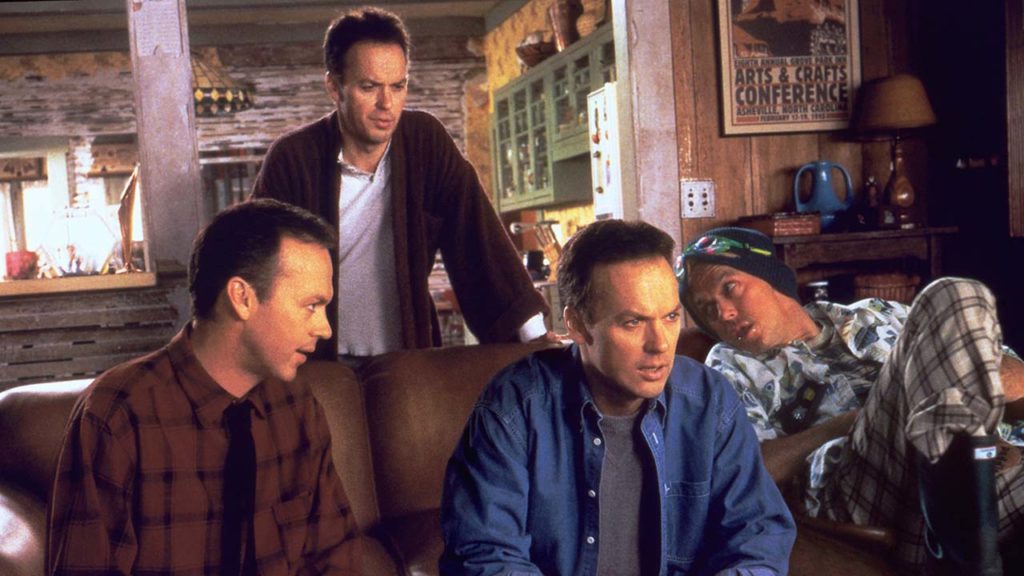
The show didn’t last into a second season, but Keaton’s gentle lunacy caught the attention of Ron Howard, who nabbed him for the
1982 film comedy Night Shift as schemerturned- pimp Bill “Blaze” Blazejowski, a role that quickly led to parts in Mr. Mom, Johnny
Dangerously, and Gung Ho. When Tim Burton cast him in 1989 as Bruce Wayne/ Batman, there were many pundits and fans of DC Comics who questioned the decision, with no fewer than 50,000 protest letters sent to Warner Bros. offices. It turned out to be the highest-grossing domestic release of the year, and, along with Batman Returns (1992) secured Keaton’s status as an enduring A-lister…or so he thought.
Inhabiting an Assassin
Based on a series of bestselling political thriller novels by the late Vince Flynn, American Assassin was co-produced by Nick Wechsler (producer of such films as Reservation Road and The Counselor), who spoke of why Keaton was the perfect choice for the role.
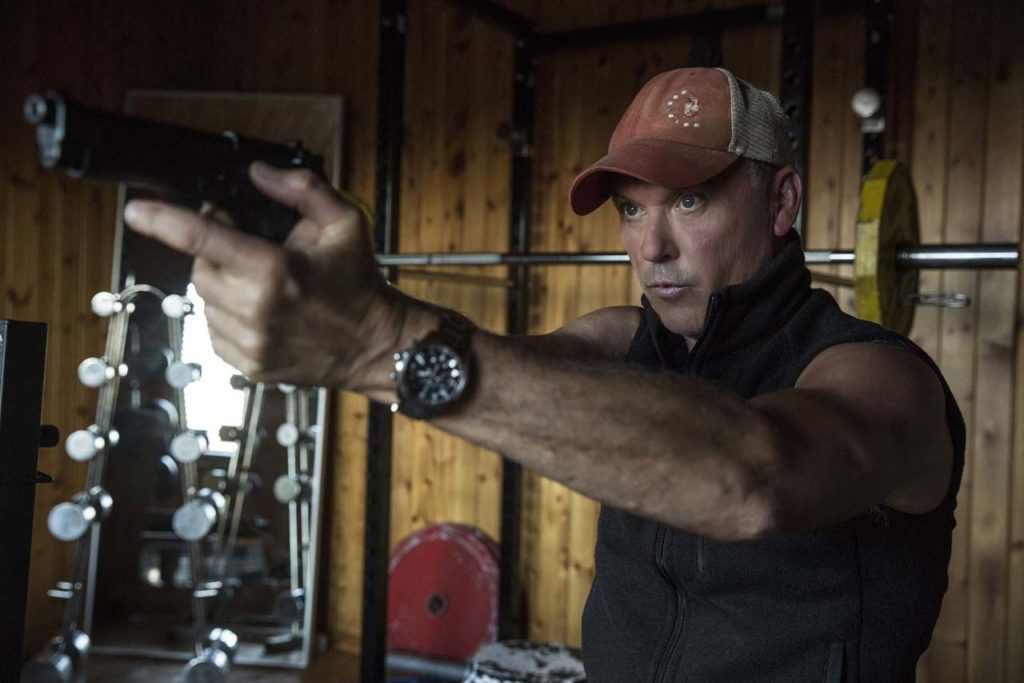
“Michael has created so many notable and acclaimed performances, but this is a type of role we’ve not seen him do before,” Wechsler said in a Lionsgate (the film’s production company) interview. “We wanted Hurley not to be just a rubber stamp kind of action guy; we wanted him to be somebody who had great depth of character, who could really do the drama that was inherent in the part.”
Of the role, and working with director Michael Cuesta (Dexter, Homeland), Keaton said: “What I admired most is that he wanted to create a spy thriller that’s more nuanced and reflective of the world as we know it today. I didn’t want to do something that would be another clichéd spy movie with the usual kinds of bad guys…and Michael did some smart things to avoid stereotypes and not over-simplify really complicated things. The film reflects just how complicated the world is right now.”
Asked about the often dyspeptic nature of Hurley, Keaton explained: “I started by asking myself who this guy was outside of the CIA…what makes him tick just as a person? I see him as someone who is very smart, who is definitely a badass, but who simply believes there can be no room for mistakes in his line of work.”
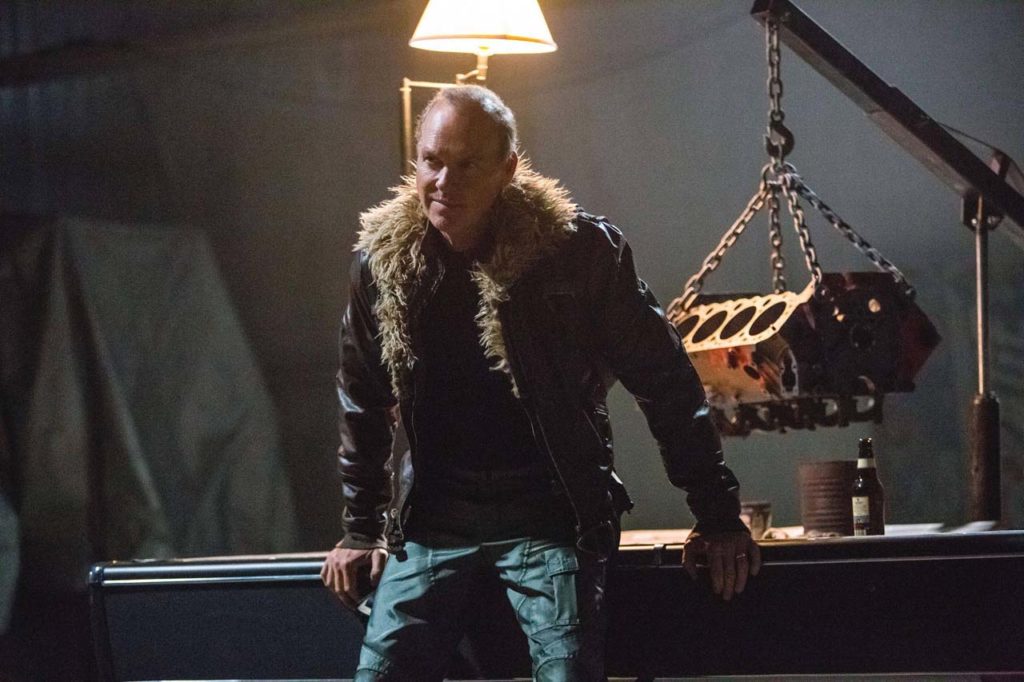
There was a fortuitous synergy in the action training for the role; Keaton was enthusiastic about practicing American Assassin fight choreography, for example, during his downtime from the set of the July-released Spider-Man: Homecoming, in which he played villain Adrian Toomes, aka Vulture. He spent months undertaking such training, and the entire American Assassin cast worked with ex-military and ex-intelligence officers, learning everything from martial arts to intelligence terminology to high-speed driving.
“I stay in pretty good shape all year-round, so I wasn’t too far off,” said Keaton. “But when I realized how intensely fit and trained Dylan [O’Brien] was, I knew that audiences have to believe Stan can stand up to that. So, instead of cardio, which is what I usually do, I did a lot more weights for this film.”
Joost Janssen, who served as a military and intelligence consultant to the production, worked with Keaton while overseeing the actor’s tactical and weapons training.
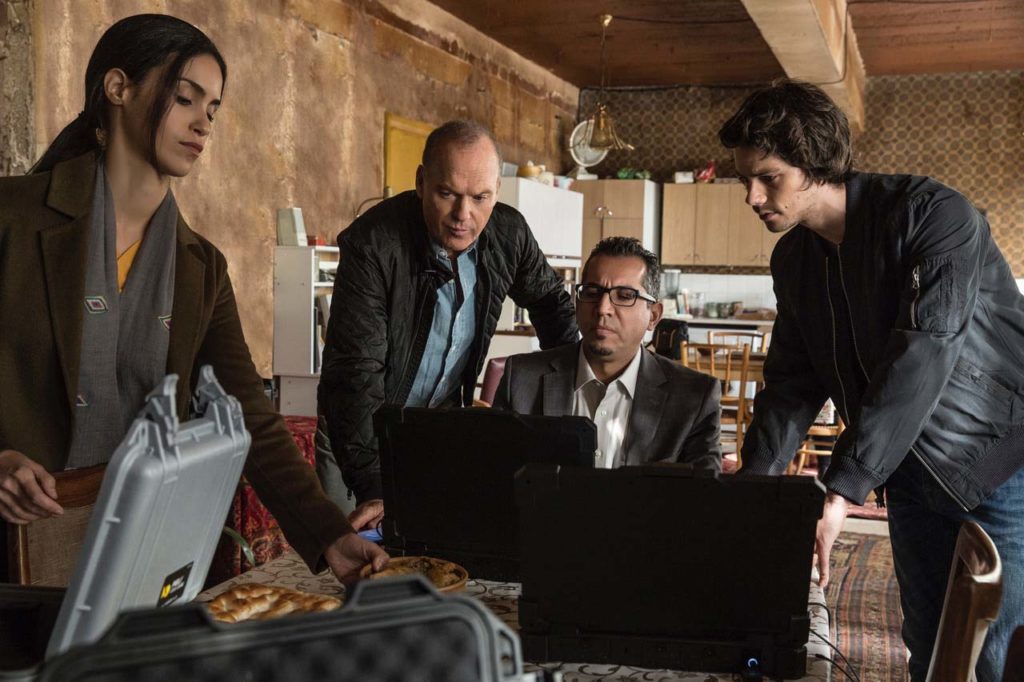
THE-LONG-WALK-C-BLACK-5401.CR2
“Michael has great curiosity and wants to know everything about everything when it comes to training,” said Janssen. “When I was teaching him about weapons, we went over every inch of things,
from cleaning a weapon to taking it apart and putting it back together, because he had to know how it all works,” adding that “I felt it was important to get the military aspects right, and while one small detail might not make any obvious difference, when you bring hundreds of authentic details together that’s what make for realism in filmmaking.”
The result is, according to Cuesta, Keaton “nailing Hurley’s tough-guy persona like a 21st-century John Wayne.”
“Hurley is the ultimate pragmatist— beyond practical…[he believes] that people are disposable,” Keaton said. “Which is how I view life, actually, to tell the truth [laughs], a coldhearted approach to things. That’s basically who he is. Some people have a purpose-driven life; he really has a purpose-driven life.”
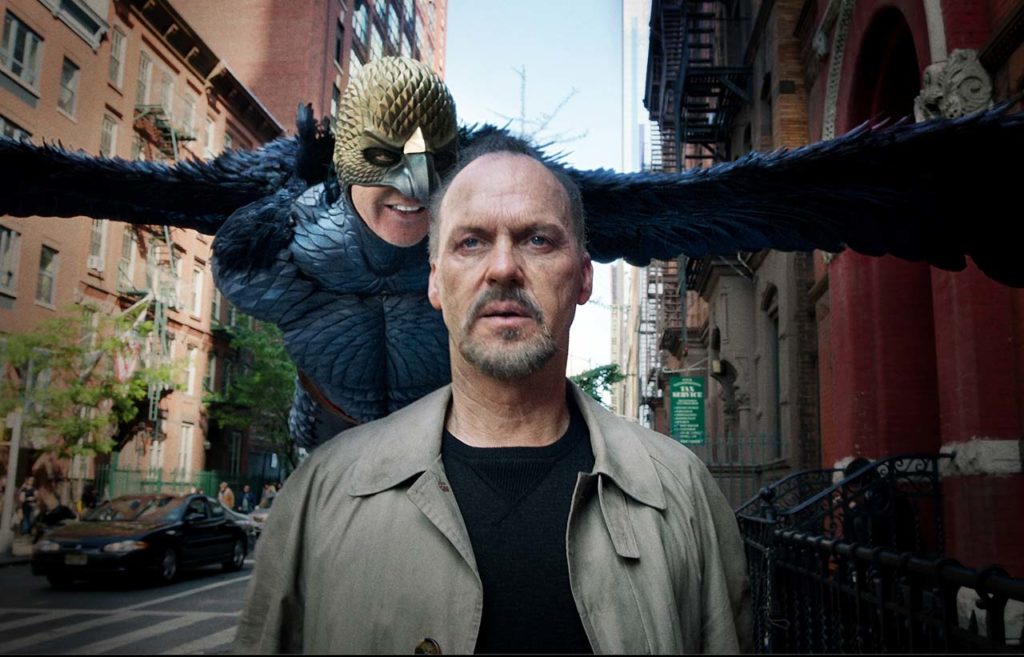
“It’s an action thriller, but there is drama in all the characters,” Wechsler added. “That’s what will keep everyone glued into this picture—being invested in the characters, and what their problems are with the other characters. That’s why Keaton was such a great choice.”
